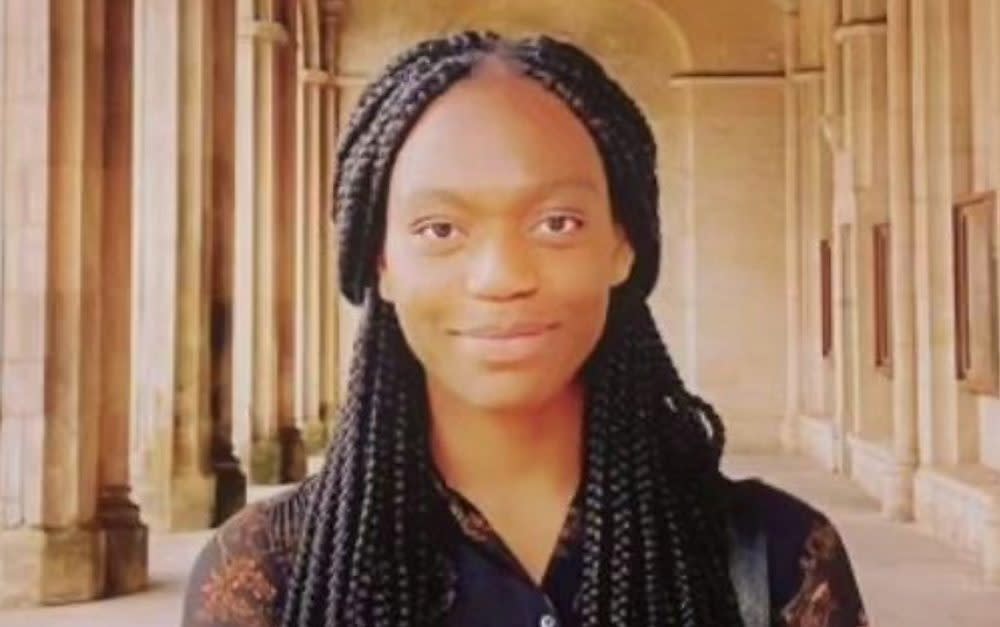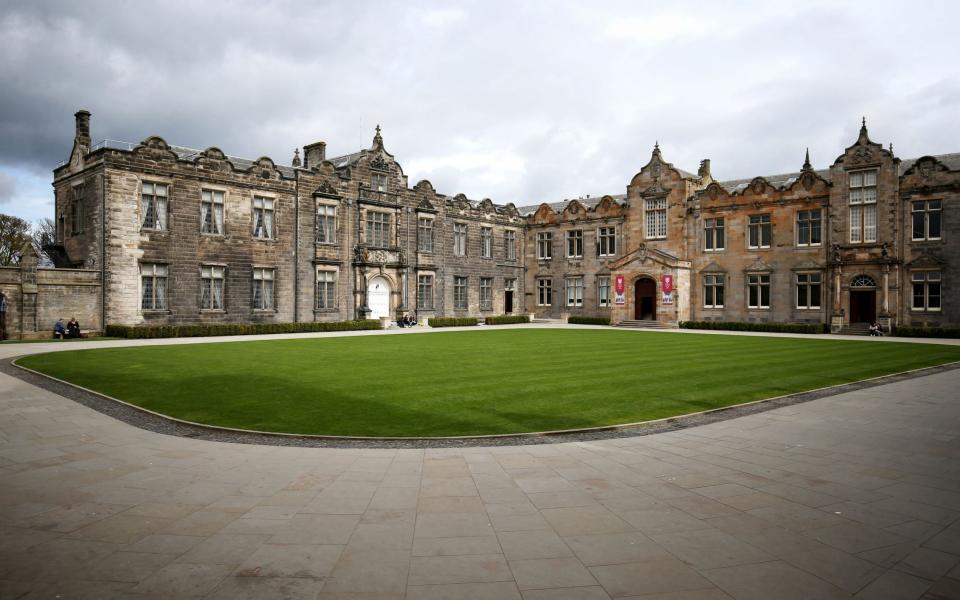Jewish students at St Andrews accuse rector of ‘fostering hate’ over Israel genocide claim

Jewish students at one of Britain’s most prestigious universities have accused its new rector of abusing her position to “foster hate” after she said Israel had committed genocide in Palestine.
The University of St Andrews Jewish Society said a message sent by Stella Maris to students about the conflict in Gaza, which also called for a ceasefire, was “divisive, harmful and not based in fact”.
Urging her to apologise or resign, the society accused her of an “abuse of power” and of misleading them by showing them a draft of the message before it was sent that omitted the genocide claim.
The university’s leadership team, led by Dame Sally Mapstone, the principal and vice-chancellor, has also criticised the message.
But a defiant Ms Maris told The Telegraph there was a “strong consensus” supporting her stance, stating that 6,600 students, staff and “community members” had backed her “humanitarian message, advocating for me to retain my position”.
She highlighted a letter sent by more than 100 “concerned staff” to the university’s leadership in which they expressed their “emphatic disagreement with your public statement criticising” the rector’s Gaza message.
‘You will never intimidate me’
Ms Maris also hit out at the Jewish Society statement online by saying she would not “have anti-Semitism weaponised against me” and warning “you will never intimidate me into not speaking truth to power”.
In an attempt to heal the schism at the university, Ms Maris and Dame Sally issued a joint statement to all staff and students acknowledging that the message “was welcomed by some in our community, and has deeply upset others”.

Dame Sally said she had met the rector and they had agreed to “a process of mediation in which she and I will work together to try to restore an environment of inclusivity and respect”.
Ms Maris, a former English and philosophy graduate at the university, was only elected rector on Oct 13. The Telegraph disclosed on Saturday how the message she sent to students last week had caused uproar.
She described how a vigil at the university was held earlier this month “following weeks of genocidal attacks by the Israeli government against Gaza”.
Condemning actions that were internationally regarded as war crimes, she said: “These include practices such as apartheid, siege, illegal occupation and collective punishment, which have been observed in the treatment of Palestinians.”
The lengthy email also included an internet link to websites about the region. This included one called The Electronic Intifada, which was topped by a story headlined: “The evidence Israel killed its own citizens on 7 October.”
More than 1,400 students, their families and alumni signed an open letter urging her to apologise or resign but she argued her application of the terms “genocide” and “apartheid” were “supported by numerous human rights organisations”.
She told The Telegraph that The Electronic Intifada “provide evidence for their claims in their articles” and argued that people should not disagree with them “simply because the notion is unpleasant”.
Maris statement was ‘deliberately misleading’
But the Jewish Society statement said the rector had been “elected by students as a representative voice”.
“Whilst constructing this statement, Rector Maris met the Jewish Society, but her published statement was significantly different to that which was shared with us, deliberately misleading members of our community,” it said.
It also accused her of minimising “the plight” of the hostages taken by Hamas, “demonstrating unequal concern for Israeli and Palestinian lives” and ignoring anti-Semitic attacks in St Andrews.
“Instead, she has chosen to use her platform to create division and foster hate in the St Andrews community. At the time of writing, the Rector has yet to respond to any emails from concerned students, alumni, or other relevant parties,” the statement said.
“We call for an apology from Rector Maris for the abuse of power that she has demonstrated. Failing this, we have no choice but to call for the resignation of Rector Stella Maris, in the interests of supporting all students and maintaining unity in the St Andrews community.”
Denying there was a “lack of student support for my stance”, she told The Telegraph that the letters she had received backing her “clearly indicate otherwise, reinforcing my confidence in the statement I made and its representation of the students who elected me”.
Ms Maris said she had consulted a variety of groups, including the Jewish Society, before sending her message but denied misleading them. She added: “It was made clear that their role was not to dictate the content of the letter but to provide input.”
Ms Maris said the link to the Electronic Intifada website was a “red herring”, saying she had removed it and “consider this matter closed”.
The allegation that she used her position to “create division and foster hate” needs “to be investigated”, she added.
The staff letter of support, which includes many signatories from the university’s School of International Relations, defended her use of the terms “genocide”, “apartheid” and “occupation”.
It said Israel’s status “as an occupying power has been recognised in international law since 1967” and its differentiation of rights for Jewish and non-Jewish citizens “has been described as apartheid by mainstream human rights organisations”.
The letter said the leadership team had “exacerbated the injustice done to Rector Maris by reiterating and amplifying these accusations and by itself wrongly accusing her of failing to use words responsibly”.
The joint message from Dame Sally and Ms Maris said: “The Rector wishes to acknowledge the distress which elements of her message have caused to some students, staff and alumni in the St Andrews community.”
“She also wishes it to be known that she will advocate for the voices of Palestinian, Jewish, BAME and other groups of students affected directly, and indirectly, by the war in Gaza and Israel to be heard.”
Dame Sally “unreservedly” condemned racist abuse Ms Maris received “from sources outside the university” and said she intended to “pursue further mediation” with her.

 Yahoo News
Yahoo News 
